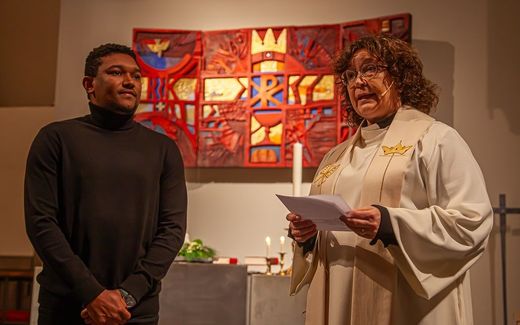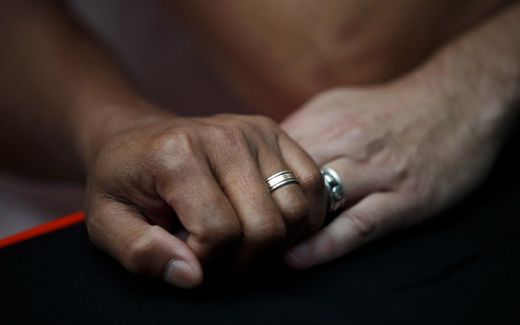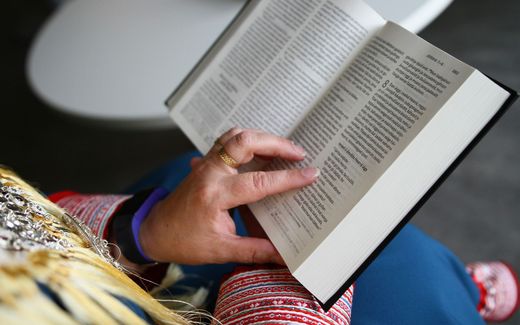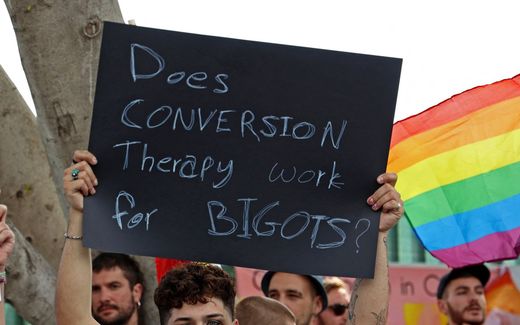How a new chaplain brings the chapel to Norway's parliament
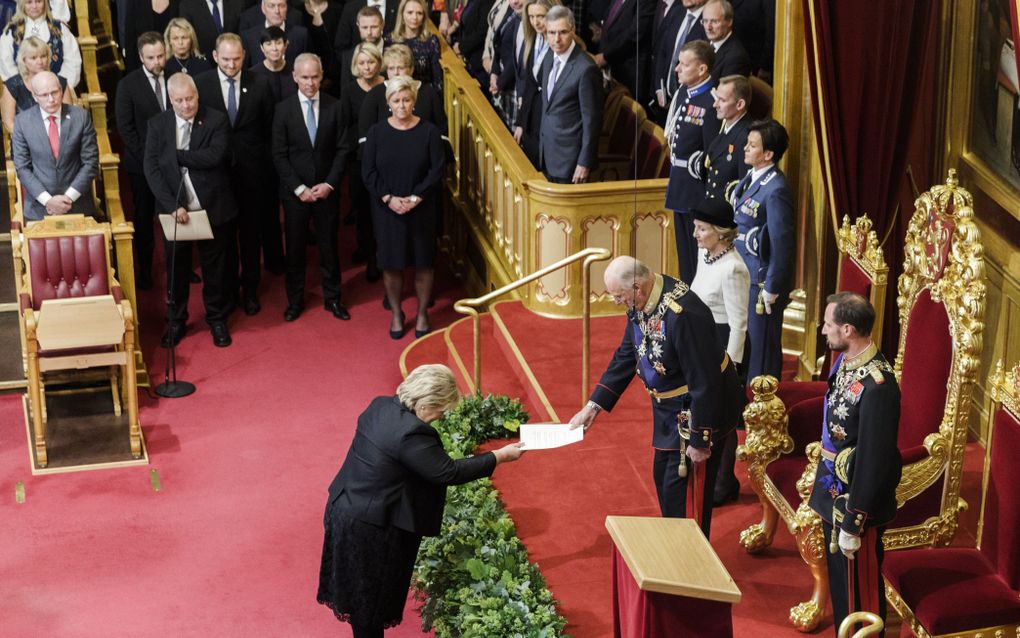
Former prime minister, Erna Solberg, gives King Harald of Norway a speech to address the Storting's 163rd formal State Opening. Photo ANP, Berit Roald, Norway Out.
Northern Europe
The parliament's chaplain in Norway remains a source of curiosity. When the world spoke about the separation of church and state, Norway's Storting appointed an official pastor in 2007. He even organises church services in the parliament.
Stay up to date with Christian news in Europe? Sign up for CNE's newsletter.
For more than ten years, Sjur Isaksen was the parliamentary chaplain. From January, the parliament will soon hand the reins to Tron Fagermoen, a senior lecturer and student priest at MF University of Applied Sciences. He is set to start the new position in January 2025.
Fagermoen explains that he is grateful for the upcoming opportunity and is happy that the Norwegian parliament still wants a chaplain. "My hope is to do what any priest should do: To preach the Gospel and do counselling," he says to CNE.
Current chaplain Sjur Isaksen spoke about the position and what it takes to become a chaplain at the Storting. Isaksen explained that the chaplain has to be present one day a week and works with the National Church of Norway.
Isaksen says it is important to emphasise that the Storting hires the chaplain because the parliament finds it helpful. Although the Storting has enjoyed close ties between the state and church, the position is also determined based on the competence of the chaplain regardless of their affiliation. The Norwegian government considers his role a 20 per cent position, meaning that priests are on duty in parliament at least 20 per cent of the time.
The National Church of Norway is Lutheran, and at least 65 per cent of the population are members of this so-called people's church. He mentions that all chaplains have two pillars within their responsibilities. One of those involves holding church services for parliamentary members. Services are currently held in the parliament building's basement.
In the services, he usually reads a Bible text, prays the Lord's Prayer, and sings a couple of hymns with members. Another pillar is conducting counselling sessions for any of the approximately 800 employees, including legislators and the parliament's support workers.
When parliamentary members seek counselling, it can be for any topic or issue that they are experiencing at the moment. In his pastoral role, he has the obligation to follow along and become an active listener in the process. Some have also expressed interest in the Christian faith.
"People are people. They have the same problems and successes as the rest of us. They are often under pressure, have points of stress, and they want to speak outside the system," Isaksen says. He is also a pastor at a Lutheran church in Oslo's city centre, providing pastoral counselling to his congregants.
Passing the baton
Tron Fagermoen added that while this service will be offered to all those working at the Storting, the counselling room is not a place for monological preaching or for giving political advice. Rather, each session would relate to the potential problems that might arise in the private or professional lives of those attending. "It is very much up to the person coming."

In light of the chaplain's Christian position, some have also asked: Why would the Norwegian parliament hire a Lutheran pastor and not leaders from other faiths? Isaksen answers the question by pointing out that the government's religious policy does support faith communities, particularly those within the Church of Norway. According to him, the Lutherans have a unique historic position.
While many parliamentary members benefitted from having a Christian pastor for a decade, Isaksen admits it is time to pass the baton to someone else. He wants to focus on retirement and spending more time at his local congregation in the future.
Now that Tron Fagermoen will take over soon, he says he is happy to find a position where faith and politics are connected. In his job at the MF University of Applied Sciences, he often engages in conversations with students who have questions related to faith or who experience challenges in their everyday lives.
Fagermoen hopes that these discussions will continue with those at the Storting. "If I can do my share to support them, it would be meaningful."
Related Articles


